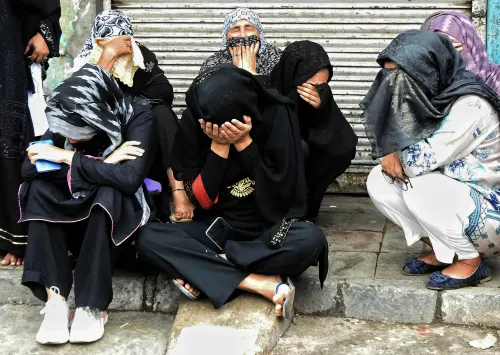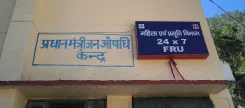Should Israel Abandon Its Settlement Plans in the West Bank?

Synopsis
Key Takeaways
- The EU has urged Israel to halt settlement construction in the occupied West Bank, citing legal and peace concerns.
- Settlement plans in the E1 area could sever territorial connections between East Jerusalem and the West Bank.
- The international community views Israeli settlements as illegal under international law.
- Continued expansion threatens the viability of a two-state solution.
- The International Court of Justice has declared the occupation illegal.
Brussels, Aug 15 (NationPress) The European Union (EU) foreign policy chief, Kaja Kallas, has called on Israel to abandon its plans to proceed with settlement construction in the E1 region of the occupied West Bank. She cautioned that such a move would breach international law and critically undermine the chances for a two-state solution.
"If carried out, the construction of settlements in this area will permanently disrupt the geographical and territorial connectivity between occupied East Jerusalem and the West Bank, effectively severing the link between the northern and southern parts of the West Bank," Kallas stated in her announcement on Thursday.
She emphasized the necessity for Israel to cease its settlement policies, which include demolitions, forced relocations, evictions, and home confiscations. Kallas pointed out that these actions, alongside settler violence and military operations, are escalating tensions and diminishing the prospects for peace, as reported by Xinhua news agency.
The EU reiterates its request for Israel to refrain from advancing this decision, highlighting the extensive repercussions and the urgent need to consider measures that will safeguard the viability of a two-state solution, Kallas added.
She underlined that the unilateral actions, in conjunction with settler violence and military operations, exacerbate an already volatile situation on the ground, undermining peace efforts.
The E1 area, situated east of Jerusalem between the city and the settlement of Ma'ale Adumim, is particularly controversial as construction there would effectively isolate East Jerusalem from the northern West Bank.
Plans for development in this area have been on hold for years, primarily due to international opposition.
On Thursday, Israeli media reported that Israeli Finance Minister Bezalel Smotrich has approved the construction of 3,401 settler units in Ma'ale Adumim, along with an additional 3,515 units in neighboring areas. This project is perceived as a strategy to divide the West Bank into two segments, severing links between its northern and southern cities and isolating East Jerusalem.
The Palestinian Foreign Ministry condemned this action as part of Israeli Prime Minister Benjamin Netanyahu's vision for a Greater Israel, warning it would entrench the occupation and obliterate the feasibility of a Palestinian state.
The international community, including the UN, deems Israeli settlements illegal under international law.
The UN has persistently cautioned that ongoing settlement expansion jeopardizes the viability of a two-state solution, which is considered essential for resolving the longstanding Palestinian-Israeli conflict.
In an advisory opinion last July, the International Court of Justice ruled that Israel's occupation of Palestinian territories is illegal and called for the evacuation of all settlements in the West Bank and East Jerusalem.









